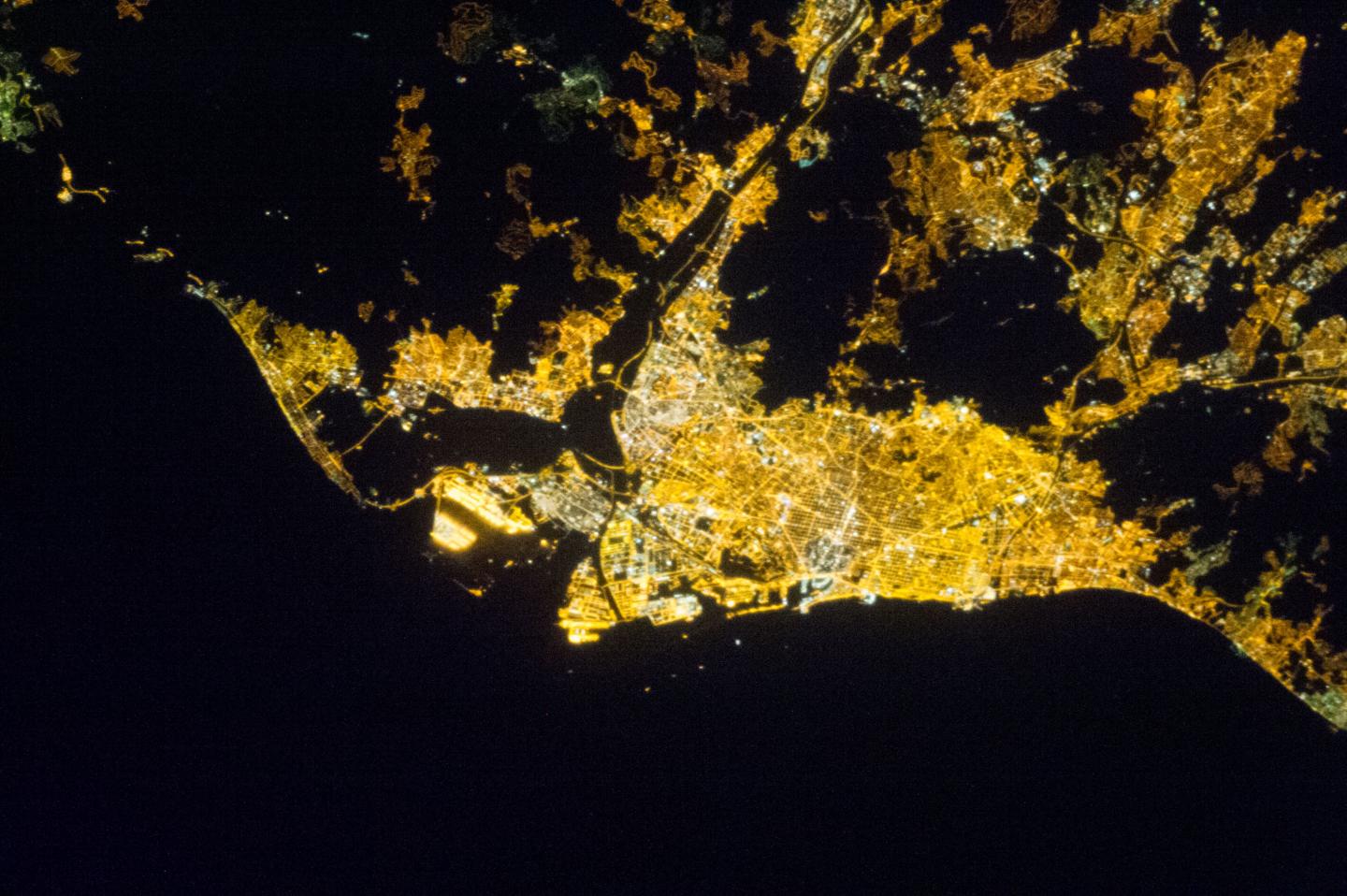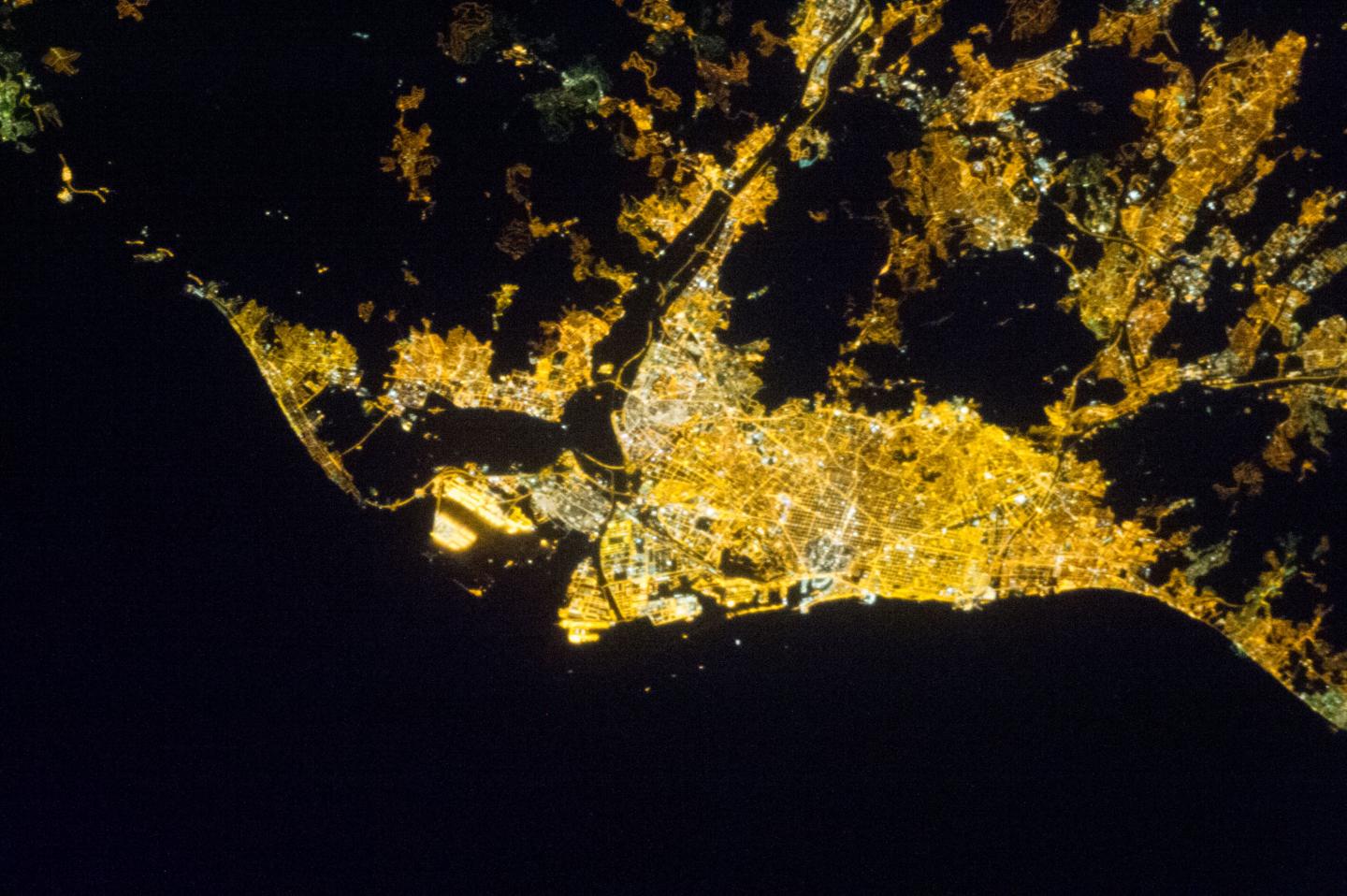
Credit: Image courtesy of the Earth Science and Remote Sensing Unit, NASA Johnson Space Center. http://eol.jsc.nasa.gov
A study performed by an international team led by the Barcelona Institute for Global Health (ISGlobal), a centre supported by the "la Caixa" Foundation, reports a link between exposure to blue light at night and higher risk of developing breast and prostate cancer. Blue light is a range of the visible light spectrum emitted by most white LEDs and many tablet and phone screens. The results have been published in Environmental Health Perspectives.
"WHO's International Agency for Research on Cancer (IARC) has classified night shift work as probably carcinogenic to humans. There is evidence pointing to an association between exposure to artificial light at night, disruption of the circadian rhythm, and breast and prostate cancers. With this study we sought to determine whether night exposure to light in cities can affect the development of these two types of cancer", explains Manolis Kogevinas, ISGlobal researcher and coordinator of the study. "We know that depending on its intensity and wave length, artificial light, particularly in the blue spectrum, can decrease melatonin production and secretion", says Martin Aubé, physics professor at CÉGEP in Sherbrooke, Canada and study co-author.
The study was conducted within the framework of the MCC-Spain project cofunded by the 'Consorcio de Investigación Biomédica en Red de Epidemiología y Salud Pública' (CIBERESP), and includes medical and epidemiological data of more than 4,000 people between 20 and 85 years of age in 11 Spanish regions. Indoor exposure to artificial light was determined through personal questionnaires, while outdoor levels of artificial light were evaluated for Madrid and Barcelona, based on nocturnal images taken by astronauts aboard the International Space Station.
Results obtained for both cities show that participants exposed to higher levels of blue light had a 1.5 and 2-fold higher risk of developing breast and prostate cancer, respectively, as compared to the less-exposed population.
Ariadna García, ISGlobal researcher and first author of the study, says: "Given the ubiquity of artificial light at night, determining whether it increases or not the risk of cancer is a public health issue". At this point, further studies should include more individual data using for instance light sensors that allow measuring indoor light levels. It would also be important to do this kind of research in young people that extensively use blue light emitting screens".
"Currently, the images taken by the astronauts on the Space Station are our only way of determining the colour of outdoor lighting at a large scale, and the spread of blue light-emitting white LEDs in our cities", comments Alejandro Sánchez de Miguel, scientist at the Astrophysics Institute in Andalucía-CSIC and Exeter University.
###
Reference
Garcia-Saenz A., Sánchez de Miguel A., Espinosa A., Valentín A., Aragonés N., Llorca J., Amiano P., Martín Sánchez V., Guevara M., Capelo R., Tardón A., Peiró-Pérez R., Jiménez-Moleón JJ., Roca-Barceló A., Pérez-Gómez B., Dierssen-Sotos T., Fernández-Villa T., Moreno-Iribas C., Moreno V., García-Pérez J., Castaño-Vinyals G., Pollán M., Aubé M., Kogevinas M. Evaluating the association between artificial light-at-night exposure and breast and prostate cancer risk in Spain (MCC-Spain study). April 2018. DOI:10.1289/EHP1837. Environmental Health Perspectives
Media Contact
Pau Rubio
[email protected]
34-932-147-333
http://www.isglobal.org/en/
Original Source
https://www.isglobal.org/documents/10179/6225531/NdP+Luz+azul+cancer+ENG.pdf/ee390e95-a616-4e92-8fcf-ff0b856a96ea http://dx.doi.org/10.1289/EHP1837





